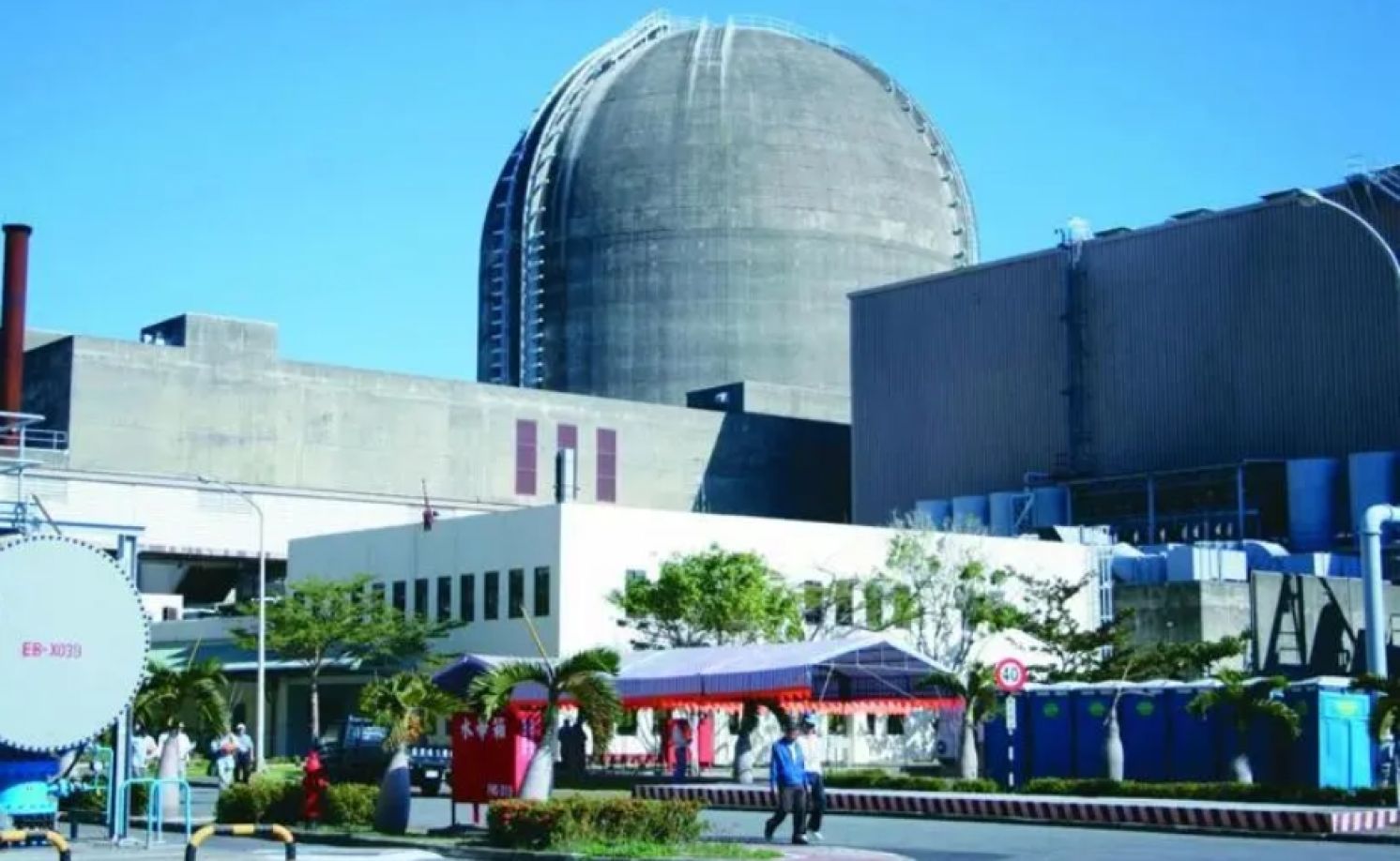
Non-Nuclear "New Five Noes" A National Security Threat
By Cheng Po-wen, United Daily News Opinion, July 25, 2025
Former U.S. Naval Intelligence Director Rear Admiral Michael Studeman on July 23 stated that he supports energy diversification for Taiwan and believes that Taiwan should have at least one nuclear power plant. This is not the first time that American personnel have expressed concern over the Democratic Progressive Party (DPP)’s energy policy. In fact, even without the United States stating it explicitly, a single typhoon has already brutally torn apart the truth behind the ruling party’s proudly proclaimed "nuclear-free homeland."
Solar floating platforms spreading across the sea are shocking to see, causing the public to suspect whether these solar installations are damaging Taiwan’s ecology. Although the authorities claim that the damage to solar installations was minimal and only slightly affected power generation, I dissent and believe the government is covering up the disaster. In fact, the DPP’s "Five Nos" energy policy deserves thorough review and revision, or else it will devolve into the "New Five Nos."
The first "no" is unscientific. Clearly, according to calculations, Taiwan will not be able to supply 20 percent of its electricity from solar and wind by 2025, but the former administration of President Tsai Ing-wen still forcefully pushed the policy nine years ago. Energy policy is part of public policy and should rely on scientific methods for argumentation, but unfortunately, the DPP administration does not respect scientific expertise, leading to the destruction of Taiwan’s previously sufficient and stable power supply and low electricity price investment environment.
The second "no" is not environmentally friendly. To meet the 20 percent solar and wind power supply, the DPP administration has massively destroyed farmland and forests to generate electricity across Taiwan, and euphemistically promoted “fishery-solar symbiosis.” The result, however, has severely damaged Taiwan’s agricultural and fishery production environment as well as soil and water conservation. If he were still alive and again conducted aerial photography of Taiwan’s post-disaster scenes, then Mr. Chi Po-lin, the late director of the acclaimed documentary Beyond Beauty: Taiwan from Above, would undoubtedly feel even greater sorrow at how Taiwan’s environment has been utterly wrecked by the DPP’s anti-nuclear energy policy over the past nine years.
The third "no" is unhealthy. From the Tsai administration to the incumbent administration of President Lai Ching-te, in order to compensate for the power gap caused by the shutdown of nuclear power plants, they have installed a large number of thermal power units or restarted old coal-fired units. Regardless of whether it’s oil, coal, or gas, thermal power emits carcinogenic substances into the air, and the number of lung cancer cases in Taiwan has been increasing sharply. It is estimated that this year the number of lung cancer cases will rise to 28,000, ranking as the number one cancer. Energy policy must not neglect the health of the people.
The fourth "no" is injustice. Former President Tsai repeatedly promised that electricity prices would not rise, but during the later stages of her administration, prices still soared. The national treasury has been subsidizing the Taiwan Power Company with hundreds of billions every year, using the public’s money to subsidize green energy companies, yet repeated reports have emerged of green-friendly cronies enriching themselves. The DPP’s energy policy has caused Taipower to suffer huge losses year after year and has greatly increased national debt—there is no fairness and justice at all.
The fifth "no" is lawlessness. Facing the possibility that solar and wind energy might not meet targets or could create gaps, the DPP administration has not hesitated to operate in legal gray areas. For instance, to allow the smooth construction of liquefied natural gas (LNG) receiving terminals, they forcefully advanced the third and fourth terminals while environmental reviews were still under dispute. To ensure that solar and wind targets were met, they bypassed environmental review procedures and soil and water conservation operations, leading to hillsides being leveled for solar farms, and even lagoons or ponds were not spared. This recent typhoon precisely exposed the disasters caused by these solar facilities to the eyes of the public.
The DPP’s energy policy has drawn the wrath of both nature and people, devolving into this "New Five Nos," and has become a national security crisis. Some political figures are fond of learning from Japan, and in my view, the Lai administration could also refer to Japan’s energy policy. After all, Japan also shifted from anti-nuclear back to nuclear, and has clearly stated that achieving the goal of net-zero carbon emissions cannot exclude nuclear energy.